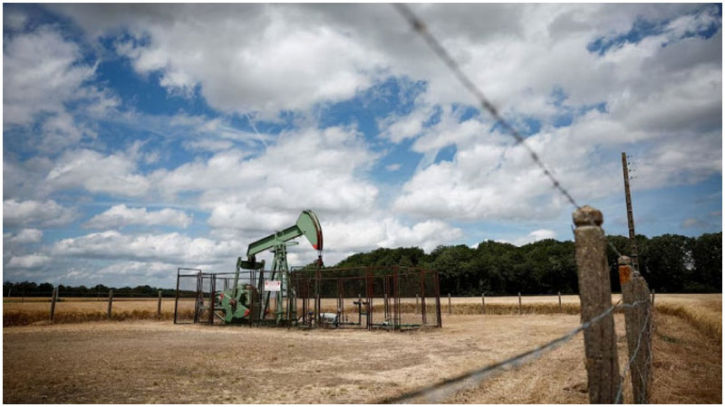Oil jumps as investors assess Iran-Israel ceasefire

Oil prices rebound on Wednesday as investors assessed the stability of a ceasefire between Iran and Israel, but held near multi-week lows on the prospect that crude oil flows would not be disrupted.
Brent crude futures rose 85 cents, or 1.3%, to $67.99 a barrel at 0341 GMT, while US West Texas Intermediate (WTI) crude gained 87 cents, or 1.4%, to $65.24.
Brent settled on Tuesday at its lowest since June 10 and WTI since June 5, both before Israel launched a surprise attack on key Iranian military and nuclear facilities on June 13.
Prices had rallied to five-month highs after the US attacked Iran's nuclear facilities over the weekend.
"Global energy prices are moderating following the Israel-Iran ceasefire. The base case for our oil strategists remains anchored by fundamentals, which indicate sufficient global oil supply," said JP Morgan analysts in a client note.
US airstrikes did not destroy Iran's nuclear capability and only set it back by a few months, according to a preliminary US intelligence assessment, as a shaky ceasefire brokered by US President Donald Trump took hold between Iran and Israel.
Earlier on Tuesday, both Iran and Israel signalled that the air war between the two nations had ended, at least for now, after Trump publicly scolded them for violating a ceasefire.
As the two countries lifted civilian restrictions after 12 days of war - which the US joined with an attack on Iran's uranium-enrichment facilities - each sought to claim victory.
"The Israel-Iran ceasefire is likely to prove fragile. But so long as both parties show themselves unwilling to attack export-related energy infrastructure and/or disrupt shipping flows through the Strait of Hormuz, we expect bearish fundamentals in the oil market to continue ... from here," said Capital Economics chief climate and commodities economist David Oxley.
Direct US involvement in the war had investors worried about the Strait of Hormuz, a narrow waterway between Iran and Oman, through which between 18 million and 19 million barrels per day (bpd) of crude oil and fuel flow, nearly a fifth of global consumption.
Investors awaited US government data on domestic crude and fuel stockpiles due on Wednesday.
Industry data showed US crude inventories fell by 4.23 million barrels in the week ended June 20, market sources said, citing American Petroleum Institute figures on Tuesday.
.png)




